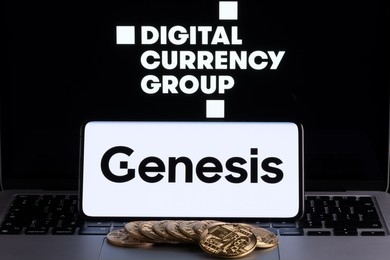In a surprising twist, Digital Currency Group (DCG), the parent company of defunct crypto lender Genesis Capital, has contested the settlement agreement reached with the New York Attorney General’s (NYAG) office, citing alleged violations of the Bankruptcy Code.
The legal saga, which saw the NYAG accusing Genesis and its collaborators of defrauding investors for over $3 billion, took an unexpected turn when DCG filed a court objection to the settlement.
Violation Of Bankruptcy Code?
DCG’s objection, outlined in a recent court filing issued on Wednesday, revolves around the belief that the proposed settlement allows the Debtors (Genesis) to redistribute value from lower classes to preferred creditors, thereby violating the absolute priority rule.
The objection argues that the New York Attorney General’s office agreement with Genesis, portrayed as a settlement, is an attempt to secure insurance against an adverse decision on the Debtors’ plan.
DCG claims that the NYAG agreement circumvents the Bankruptcy Code and unfairly allocates the entire residual value of the Debtors’ estates to the NYAG and unsecured creditors.
Furthermore, DCG asserts that the NYAG agreement violates Bankruptcy Code Sections 1129 and 502(b) by providing the NYAG and unsecured creditors with a recovery greater than the Dollarized Value.
The objection contends that the proposed settlement is not fair, equitable, or in the estate’s best interests. DCG argues that the plan fails to comply with the absolute priority rule, which should prevent a senior class from receiving more than full compensation for its claims.
Digital Currency Group Objects To Bankruptcy Plan
According to Digital Currency Group’s claims, the bankruptcy plan developed by the Unsecured Creditors Committee and Ad Hoc Group, in collaboration with Genesis, disenfranchises equity interests and favors general unsecured creditors.
Digital Currency Group claims the process was conducted “clandestinely” and allegedly excluded their participation, further violating the Debtors’ fiduciary duties and demonstrating a “lack of good faith.”
DCG’s objection also highlights additional advantages granted to certain creditors, including unrecognized post-petition interest rates and restrictions on DCG’s rights as the equity holder. According to Digital Currency Group, these provisions diminish their interests and contradict the Bankruptcy Code.
Digital Currency Group urges the court to reject Genesis’ proposed bankruptcy plan and calls for a “fair and equitable” resolution that adheres to the requirements of the Bankruptcy Code.
While DCG emphasizes that it is not challenging the merits of the NYAG’s claims against Genesis, it seeks to ensure that the process respects the rights of all stakeholders and upholds the principles of the Bankruptcy Code.
Currently, the total market capitalization of the cryptocurrency market stands at $1.89 trillion, reflecting a marginal decrease of 0.20% in value over the past 24 hours. Bitcoin (BTC), the leading cryptocurrency in market share, is currently trading at $50,800, commanding a dominant 52.88% market share.
Featured image from Shutterstock, chart from TradingView.com










